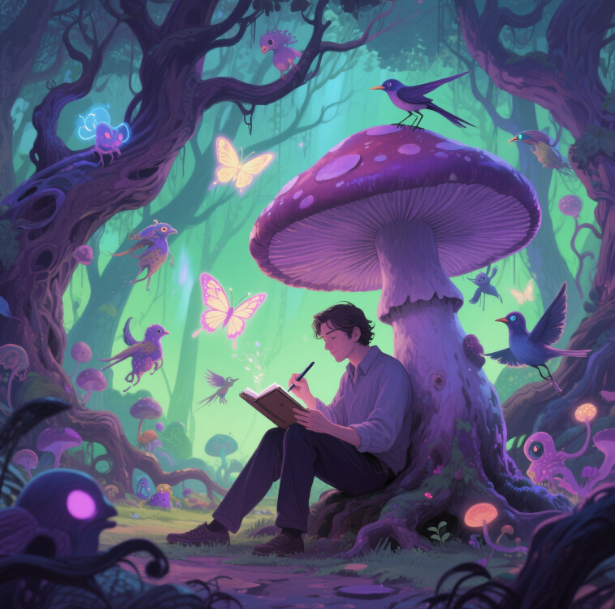When we think of creativity, we often imagine flashes of brilliance, sudden inspiration, or the romantic image of a genius struck by a divine idea in the middle of the night. We treat creativity as if it’s mystical — a rare spark bestowed upon a chosen few.
But here’s the truth: creativity isn’t magic. It’s work. It’s structure. It’s showing up every day, especially when inspiration doesn’t.
Far from being an uncontrollable force, creativity is something we can shape, strengthen, and schedule. It’s less about talent and more about commitment.
The Myth of the Muse
For centuries, artists and thinkers have described creativity as something external — a muse, a spirit, a lightning bolt. This myth can be comforting, because it allows us to avoid the discomfort of doing the work. After all, if inspiration hasn’t arrived yet, how can we begin?
But waiting for the perfect idea is often a disguise for procrastination. It lets us off the hook. It suggests that we’re not responsible for our creative output — that we’re merely vessels waiting to be filled.
The reality is less glamorous but more empowering: creative people don’t wait for inspiration; they build systems to capture it when it arrives.
Creativity Is a Muscle
Like strength or skill, creativity grows through consistent effort. The more you use it, the stronger it becomes. The less you practice it, the more distant it feels.
Great musicians rehearse scales. Writers draft pages no one will ever see. Designers sketch a dozen failed versions before landing on the right one. Behind every masterpiece is a mountain of discarded work.
This kind of practice isn’t glamorous. It involves showing up even when you don’t feel like it. But that’s the discipline — trusting the process even when the results aren’t immediate.
If you treat creativity like a muscle, you stop waiting to feel “ready.” You start training.
The Role of Constraints
Interestingly, boundaries can fuel creativity, not hinder it. A blank canvas or an open-ended project may seem freeing, but too much freedom can lead to paralysis.
Think of poets who write within the limits of a form, like a haiku or sonnet. Or filmmakers who work wonders with a tight budget. Or businesses that innovate because they have no other choice.
Constraints force decisions. They provide structure. They sharpen focus. Far from restricting creativity, they invite it to rise to the challenge.
Routine Over Revelation
Many of the most prolific creatives share one habit: routine. They build rituals around their creative practice — not because they lack imagination, but because they understand how fragile and fleeting inspiration can be.
They write at the same time each day. They paint before breakfast. They take long walks to think. These routines are not about forcing creativity, but about making space for it to emerge.
It’s not about waiting for the perfect conditions. It’s about creating conditions in which creative work becomes possible — and eventually, habitual.
The Unseen Work
We often admire the final product: the book, the painting, the song. But we rarely see the messy drafts, the failed ideas, the long hours of effort behind the scenes.
Creativity thrives in those quiet, unseen moments — the ones without applause. It’s the writer wrestling with a sentence. The coder debugging a stubborn function. The dancer rehearsing a single step for the hundredth time.
To see creativity as discipline is to honor those moments. It’s to recognize that the path to brilliance is paved with effort, not just inspiration.
Permission to Begin
Perhaps the most powerful shift is realizing you don’t need permission to be creative. You don’t need to feel like an artist. You don’t need a lightning bolt idea. You just need to begin — and to begin again tomorrow.
Creativity becomes less intimidating when we see it as a daily practice rather than a rare moment of genius. It becomes more accessible, more human.
When we approach creativity as a discipline, we take back control. We stop waiting for the muse and start building habits. We make time instead of waiting for the “right time.” We produce work, not just dreams.
Final Thoughts
Creativity isn’t a gift from the gods. It’s a craft. It’s learned, refined, and repeated. The people who create consistently don’t rely on magic — they rely on momentum.
So, if you’ve been waiting to feel ready, don’t. If you’ve been waiting for inspiration, show up instead.
Write the paragraph. Draw the sketch. Record the melody. Make the thing — even if it’s imperfect.
Because in the act of doing, discipline becomes habit. Habit becomes mastery. And mastery, over time, looks a lot like magic.



